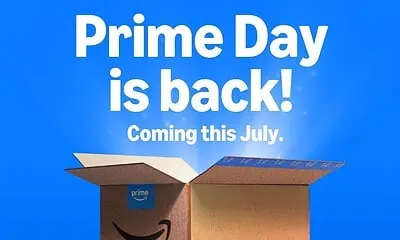Amazon
Amazon’s third-party problem legally becomes its actual problem
Should Amazon be liable for the things it sells through its platform? California says “yes.”

Just a heads up, if you buy something through our links, we may get a small share of the sale. It’s one of the ways we keep the lights on here. Click here for more.
Amazon is undoubtedly the world’s largest digital retail outlet (well, the largest retailer period) and with that designation comes the side effect of being unable — with hundreds of thousands of third-party sellers — to effectively manage its inventory. That is, up until this point, Amazon has gotten away with selling unsafe and banned products and literal trash. No more of that.
In a unanimous decision (PDF link), a California appeals court ruled that Amazon can be held legally liable for defective products sold on its site by third-party sellers. This overturns an earlier ruling by a trial court that favored Amazon. Amazon can still appeal to the California Supreme Court, but it would behoove the company to finally take a hard look at its third-party seller catalog and whittle off all the fucking garbage. So much garbage and shitty products with instruction manuals written in broken English.
This particular lawsuit, while wide-ranging in decision, was based on a replacement laptop battery purchased from a Hong Kong company
The battery exploded, the customer was burned and rightly blamed Amazon for stocking a shitty product in the first place. Amazon likes to pretend it’s not responsible for the defective, fetid slop that constitutes a lot of its third-party content, but it is and should be. After all, we’re effectively buying from Amazon on its site, not directly from the third-party sellers. If it was simply a directory, then this wouldn’t be an issue.
The court noted this distinction as well, as Amazon argued it wasn’t liable because “it did not distribute, manufacture, or sell the product,” and that the third-party seller was responsible. But the court was like pack sand you chums and wrote: “Whatever term we use to describe Amazon’s role, be it ‘retailer,’ ‘distributor,’ or merely ‘facilitator,’ it was pivotal in bringing the product here to the consumer.” This is bad news for Amazon as far as taking responsibility for the products on its platform, but great news for consumers who often have no idea what they are buying from whom.
According to Fakespot (a Chrome add-on that identifies bad reviews and bad sellers) there are millions of products and hundreds of thousands of sellers that are unreliable, amounting to 15% of Amazon sellers that are considered as such. How is the general consumer supposed to be able to tell a good seller from a bad seller? Should there be any bad sellers to begin with? Probably not. Amazon has gotten out of control. Walmart wouldn’t keep something on its shelves that harms customers. Why shouldn’t Amazon be held to the same standard? Because it’s simply aggregating third-party content?
Well, that last point doesn’t hold water any longer for Amazon
Amazon will likely appeal the ruling, but hopefully, it sticks and forces Amazon to crack down on third-party bullshit. While its reputation will likely not suffer from this, it has an opportunity here to actually clean up its marketplace. With continued growth, it’ll only get worse. It’ll fly from 15% to 50% in no time. But with this ruling, Amazon will be forced to face its reality. That it’s a house of cards built on a gravel road.
We’ve all inadvertently bought shitty products on Amazon. The most common issue is likely the one at the core of this particular legal case — crappy batteries produced on the cheap. Whatever trade war there seems to be with China, it hasn’t worked its way down to Amazon warehouses. As consumers, this should enrage us, 15% is too high considering we’re all shopping online now, but also as consumers we’re generally overwhelmed with shopping fatigue and apathy.
So we’ll see where this goes, if Amazon actually does anything about it or just pays a fine or whatever each time a customer has a serious issue with a third-party product (also, the definition of what constitutes a true issue should be considered). To its credit, Amazon has been cracking down on counterfeiters at least. It’s a start.
What do you think? Glad to see Amazon being held accountable for more things? Let us know down below in the comments or carry the discussion over to our Twitter or Facebook.
Editors’ Recommendations:
- Apparently, Amazon is looking to repurpose an abandoned mall near you
- How Jeff Bezos could spend the $3 billion in stock he cashed out
- Jeff Bezos’ personal worth overtakes McDonald’s, Costco, and Nike
- Walmart’s answer to Amazon Prime has been delayed (yes, again)


























